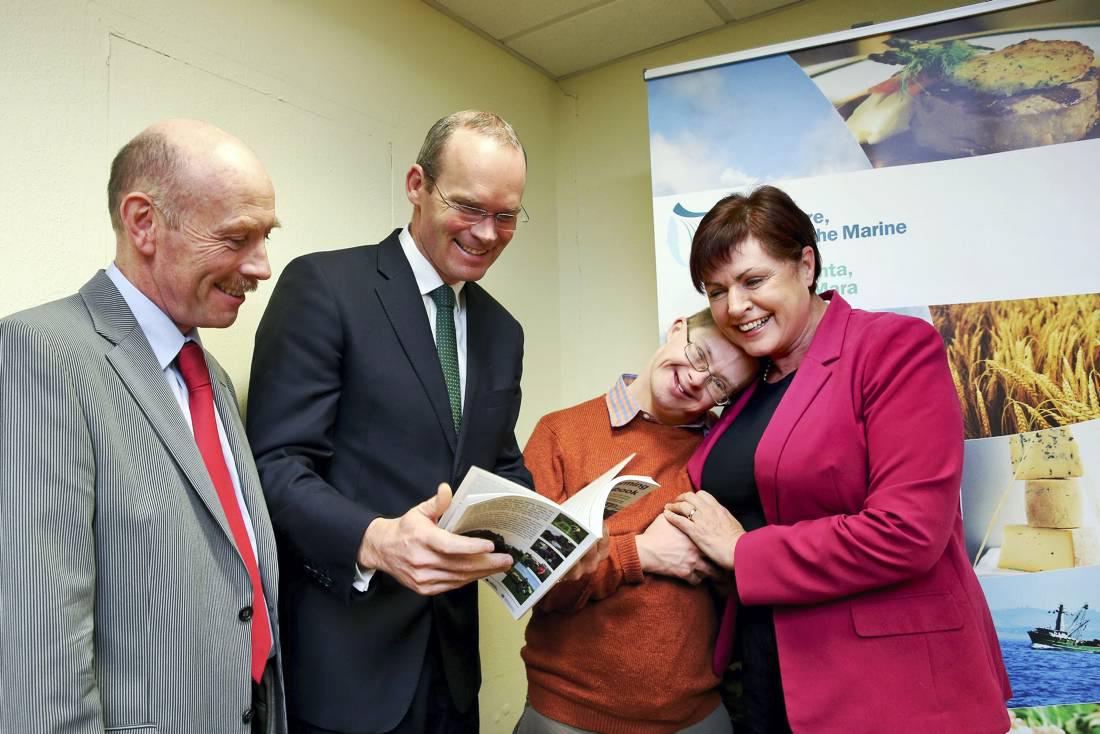The social, physical and mental benefits of farming are being harnessed through a new scheme that is set to be rolled out across the country.
Social farming helps people with a learning disability, mental health issue or an acquired brain injury through farm activities.
The scheme operated on a pilot basis as the Social Farming across Borders project (SoFAB) from October 2011 to September 2014 through 20 farmers from the north and border counties. The project was delivered by University College Dublin, Leitrim Development and Queen’s University, Belfast.
On Wednesday, a handbook was launched by the Department of Agriculture for those who are interested in participating in the scheme.
The Social Farming Handbook provides information on what is involved in establishing a social farm and shares experiences from those who took part the pilot scheme.
Speaking at the launch of the handbook, Minister of State at the Department of Agriculture with Special Responsibility for Rural Economic Development Ann Phelan explained how she believes in the benefits of social farming.
“Service users and farmers benefit hugely through the scheme. It’s all about using rural Ireland’s potential. It takes people out of daycare and sees them gain new skills and confidence,” said the minister.
“Social farming does not only have direct benefits for participants and farmers, but is also extremely beneficial to the wider community.”
There are currently 10 social farms operating in Ireland and there are plans to have 50 by 2015. Most of these farms are concentrated in northern counties.
However, there is a social farming scheme currently operating in Kerry. It is hoped that there will be 300 social farms nationwide by 2017.






 This is a subscriber-only article
This is a subscriber-only article










SHARING OPTIONS: